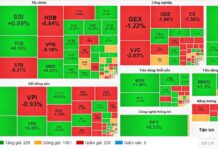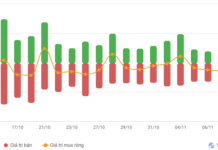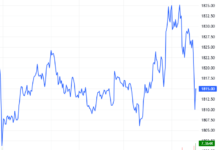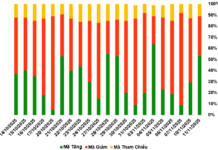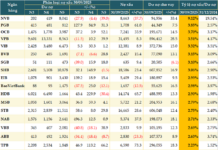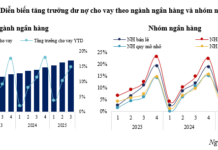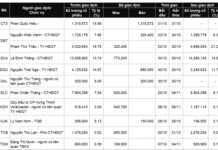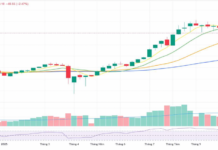Vietnam is home to approximately 17 million digital asset owners, ranking 7th globally. The country has attracted over 105 billion USD in capital inflows from the blockchain market in the 2023-2024 period.
This information was shared by Mr. Phan Duc Trung, Chairman of the Vietnam Blockchain and Digital Asset Association (VBA), at a training session on the topic “Legal Framework and Identification of Crypto Scam Risks” for over 60 journalists from various media and press agencies. The event was organized by VBA in collaboration with 1Matrix on the afternoon of August 8th.
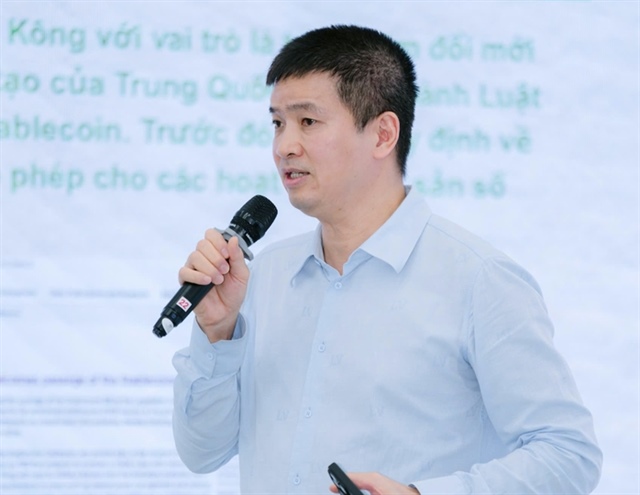 Mr. Phan Duc Trung sharing information about the progress of the legal framework for digital assets |
The training program was held amid the government and ministries’ efforts to establish and improve the legal framework for digital assets. The immediate focus is on the Ministry of Finance’s development of a draft resolution on piloting a digital asset exchange, which will be presented to the government. Digital assets have also been legalized in the Law on Digital Technology Industry, passed by the National Assembly at the 9th session.
With 17 million digital asset owners in Vietnam, Mr. Phan Duc Trung emphasized the necessity of piloting a digital asset exchange in the country. The Vietnam Blockchain and Digital Asset Association is one of the units contributing their insights and practical experiences to完善 the draft decree on piloting the digital asset exchange. Mr. Trung outlined some key features of this pilot exchange.
According to Mr. Trung, the digital asset exchange will establish clear capital mobilization policies and attract businesses and individuals to issue digital assets through transparent processes. The exchange will be responsible for the custody and management of underlying assets to ensure the security of digital assets and provide periodic reports to the Ministry of Finance on issuance activities.
The VBA Chairman also shared that approximately five exchanges are expected to be granted pilot licenses for digital asset trading, with potential connectivity to international exchanges to ensure liquidity and competitiveness. Additionally, popular digital assets such as Bitcoin and Ethereum are likely to be permitted for trading.
Emphasizing the role of the digital asset exchange, Mr. Trung stated that the initial orientation of the state management agency is to form a capital mobilization channel.
In the draft Law on Personal Income Tax (amended), the Ministry of Finance proposes that income from the transfer of digital assets (including virtual and encrypted assets) be subject to taxation. The condition for this is that the buying and selling take place on a managed exchange with transparent and publicly disclosed prices and frequent transactions. The proposed tax rate is 0.1% of the transfer value for each transaction, similar to the rate currently applied to securities.
Commenting on this tax rate, Mr. Phan Duc Trung expressed his view that it is too high. He suggested that if the transaction tax is too high, it will be challenging to compete with large digital asset exchanges in other countries. He recommended establishing a suitable tax rate, considering that, in addition to taxes, participants also have to pay fees to the exchange.
Ms. Nguyen Van Hien, Vice Chairman and General Secretary of the Association, shared that although Vietnam started late, the country is rapidly improving its legal framework for blockchain technology, digital assets, and related regulations. There is a tendency to promote innovation rather than administrative management.
“The recognition of digital assets as legal not only creates a basis for protecting investors and handling violations but also encourages domestic enterprises to develop innovative models with a legitimate status,” said Ms. Hien.
At a government press conference on the afternoon of August 7, Deputy Minister of Finance Nguyen Duc Chi shared that the ministry is developing a draft decree on piloting digital asset transactions. The ministry has studied the experiences of many countries in the region and internationally. Based on the directions of the Politburo and the Government, the Ministry of Finance will complete the draft and submit it to the Government for issuance, possibly as early as August.
|
According to data from VBA, the global population of digital asset owners is estimated to reach 562 million by 2024, a 33% increase compared to 2023. Projections indicate that the digital asset market will reach a size of 19,000 billion USD by 2033. A survey by the Atlantic Council in 75 countries showed that 45 countries recognize digital assets as legal, 20 partially prohibit them, and 10 completely ban them. Among the G20 countries, 12 have legalized digital assets. |
Minh Chien
– 20:47 08/08/2025
“VPBank Partners with Vietjet and Visa to Launch the VPBank YoJo Visa Platinum Credit Card”
The VPBank YoJo Visa Platinum card is your passport to a seamless and cost-effective travel experience. With this card, you unlock a world of exciting benefits and perks that elevate your journey to new heights. It’s more than just a financial product – it’s a strategic alliance between three industry leaders in finance, aviation, and payment technology, coming together to take your travel game to the next level.
The Ultimate Guide to Choosing a Digital Asset Framework for Vietnam
Introducing a revolutionary, regulated, and secure crypto asset exchange that prioritizes compliance and transparency for investors. This cutting-edge platform ensures a seamless and trustworthy trading experience, providing users with the confidence to explore the exciting world of crypto assets. With a focus on security and regulatory adherence, this exchange sets a new standard in the crypto industry, offering a much-needed haven for investors seeking a safe and compliant environment.
The Financial Hub: It’s Not About the Number of Skyscrapers or Acres of Land
“Vietnamese enterprises believe that the first and most crucial factor is an open-door policy. Economic experts emphasize that while tax incentives are necessary, they are not sufficient for fostering true competition. Instead, the key lies in creating a revolutionary business environment, one that fosters flexibility and encourages the development of novel financial and technological models.”

